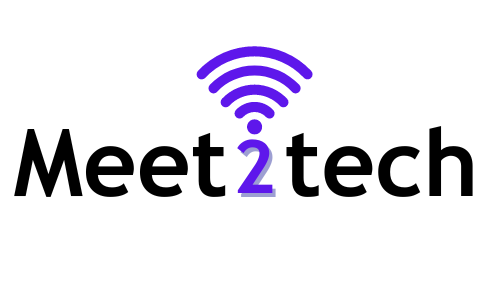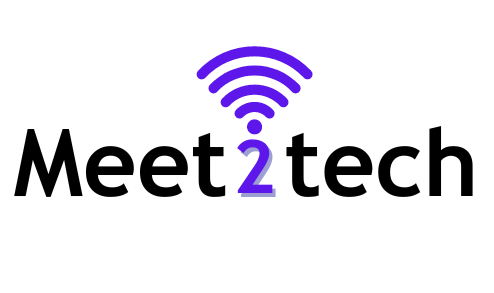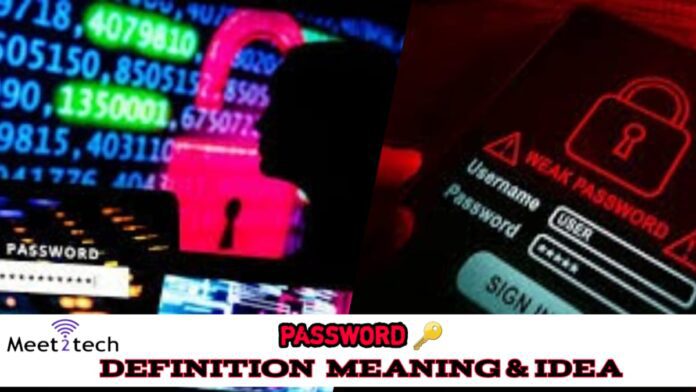Why Are Passwords Important
“In today’s digital age, as essential as passwords are, they are also equally vulnerable. From emails to bank accounts, they are the first line of defense in securing our digital lives. But how often do we stop and think about what a password really is? Even though they may seem basic, understanding the true nature and history of passwords can shed light on their importance. In this guide, we embark on a journey to explore the origins of passwords, why they are crucial in today’s world, and how they have evolved over centuries. Whether you’re a tech-savvy individual or just someone who navigates the digital realm, these insights provide a comprehensive overview of their role in our modern lives, often overlooked but pivotal. So let’s unlock the secrets behind passwords.
Definition of Password: At its core, a password is a confidential arrangement of characters used to authenticate or grant access to systems, data, or facilities. Derived from the words ‘pass’ (a means of passage) and ‘word’ (a spoken or written expression of a concept or idea), the term ‘password’ originally refers to a word or phrase that allows passage.
Simple Explanation – Think of a password in digital terms. Just as you need a physical key to unlock a lock, you need a password to access specific digital systems or data. It ensures that only those who have the appropriate arrangement can enter or access.
Technical Explanation – In computer and digital contexts, a password is a string of characters, often alphanumeric, used to authenticate users or grant access to resources. These resources can range from computer systems, networks, online accounts, or restricted digital systems.
In essence, passwords serve the purpose of verifying claims of identity, preventing unauthorized access or intrusions, and safeguarding sensitive or critical information from potential threats.
Why Are Passwords Important? Almost every online service or platform relies on password-based security protocols, making passwords a fundamental aspect of our digital lives. Particularly when cyber threats and digital crimes are prevalent, their significance cannot be overstated. Passwords are indispensable for the following reasons
People read also :- हार्डवेयरक्या हैं पूरी जानकारी| What is hardware in hindi 2024
Protection of Personal and Confidential Information
- Passwords restrict unauthorized access to personal data such as addresses, contact numbers, and birthdates, which if used maliciously, can lead to identity theft or fraud.
- They enable access to online banking, shopping accounts, and other financial platforms, ensuring that only authorized individuals can access sensitive financial details or conduct transactions.
Digital Identity Verification
- Just as an ID card verifies your identity in the physical world, a password confirms your identity in the digital realm. When you input the correct password, you validate that you are a legitimate user.
- By verifying identity, passwords prevent unauthorized access by impostors and protect your online accounts from misuse or unauthorized transactions.
Protection of Sensitive Information
- In a business context, passwords secure confidential information of companies, trade secrets, client data, and competitive or sensitive communications from interception or breaches.
- Different employees may have varying levels of access in a company’s digital systems. Passwords ensure that individuals access only the data and resources authorized for their roles.
User Experience Customization
- Password-protected accounts allow users to customize settings, prioritize security, and collect personal data for efficient and more personalized interactions in the future.
- They secure access to personal files stored in various cloud services, allowing only authorized users to access their documents, photos, and other data.
Protection of Digital Assets
- From e-books to digital game items, we possess numerous digital assets. Passwords help ensure that only rightful owners can access and manage their digital assets, be it a collection of resources or a digital property like a website, blog, or social media account.
- Passwords play a crucial role in adhering to and fulfilling regulatory responsibilities for data protection in various industries (such as GDPR in Europe or HIPAA in the U.S.), safeguarding customer and patient data from breaches or unauthorized access.
As the digital landscape expands, passwords act as our guardians, securing valuable and sensitive information from external threats and maintaining trust in the digital ecosystem we rely on every day. As cyber threats evolve, strong, secure passwords become more critical, emphasizing the need for everyone to understand digital security and prioritize it.
Types of Passwords: With technological advancements and enhanced security measures, the types and forms of passwords have diversified over the past few years. Understanding various types can help users select the most suitable method for their security needs.
People read also :- CPU INFORMATION IN HINDI / CPU की जानकारी हिंदी में 2024
Alphanumeric Passwords:
- Description: A combination of letters (both uppercase and lowercase) and numbers.
- Example: “P4ssw0rd123”
- Usage: Used for creating accounts and logging into online platforms with high security. Complex Password
- Description: A password that combines letters, numbers, and special characters.
- Example: “!@P4ss$ecure#%”
- Usage: Recommended for high-security needs like online banking or professional accounts. Passphrase
- Description: Large passwords often composed of multiple words or phrases, making them easier to remember and secure.
- Example: “BlueFrogJumpsOverTheMoon!”
- Usage: Suitable for systems requiring enhanced security, like password managers or encrypted drives. One-Time Password (OTP)
- Description: Automatically generated password or valid code for a single login or transaction.
- Example: A 6-digit code sent via SMS or email.
- Usage: Commonly used in multi-factor authentication, especially for financial transactions. PIN (Personal Identification Number)
- Description: Typically a 4-6 digit number used for user verification.
- Example: “123456” or “7890”
- Usage: Commonly used for ATM, mobile phones, and some apps. Graphical Password
- Description: Users identify images in a specific sequence for authentication.
- Example: “cat → tree → moon → sun.” as a sequence of images.
- Usage: Alternative to traditional passwords, often found in advanced security systems and mobile devices. Biometric Password
- Description: Uses unique physical or behavioral characteristics for authentication.
- Examples: Fingerprint scanning, facial recognition, voice recognition, iris or retina scanning.
- Usage: Common in smartphones, advanced security systems, and high-security environments. Token-Based Password
- Description: Authentication requiring both a password and a physical token.
- Example: A smart card that requires a PIN when inserted into a reader.
- Usage: Often used in corporate environments or secure online banking. Multi-Factor Authentication (MFA) or Two-Factor Authentication (2FA)
- Description: Requires two or more verification methods: something you know (password/PIN), something you have (smartphone or token), and/or something you are (biometric verification).
- Example: Logging in with a password and then inputting a code sent to your mobile device.
- Usage: Increasingly common in online platforms, especially those dealing with sensitive information.
- Dashlane: Manages passwords with digital wallets.
- Bitwarden: A free and open-source password manager that allows self-hosting.
- KeePass: A community-driven, open-source desktop-first solution with ports for many platforms. It is important to not rely on methods used for password management and to prioritize clean security practices. This includes using a strong master password, enabling two-factor authentication where available, and regularly updating software to ensure any known vulnerabilities are patched. Tips for creating a secure password: Passwords act as gatekeepers to our digital world, hence creating a strong, unbreakable password is crucial. Here are some expert tips that can help you fend off numerous cyber threats. Length Matters – The longer the password, the better. Aim for a minimum of 12-16 characters. Remember: each additional character enhances security exponentially. Mix it Up – Combine uppercase and lowercase letters, numbers, and special characters (e.g., !, @, #, $, etc.). Keep Personal Information Private – Avoid using easily guessable information such as your name, birthday, or username. Hackers can easily find or guess such details. Avoid Common Sequences – Patterns like “qwerty” or “asdfgh” are highly common and should be avoided. Use a Password Generator – Password managers offer online tools and features that can generate random and strong passwords, eliminating the need to create one yourself. Avoid Reusing Passwords – Use different passwords for multiple sites. If one gets compromised, all your accounts become vulnerable. Enable Two-Factor Authentication (2FA) – Where possible, enable 2FA for your accounts. This adds an extra layer of security, requiring a second verification step (e.g., a code sent to your phone) alongside your password. In the digital age, having a secure password is your first line of defense. Relying on strong password practices and management, along with constant vigilance, is essential. Accepting tools like password managers, regularly updating our passwords, and staying educated about potential threats are all critical steps forward. Ultimately, the security of our digital lives rests in our hands. Efforts made to create and manage strong passwords, compared to the potential consequences of compromised accounts, underscore the importance of digital security. Prioritizing digital security today leads to a safer, more secure tomorrow.
FAQ
Q. What is password and meaning?
Q. Why is it called password?
Q. What is password types?
Q. What is the definition of a password?


